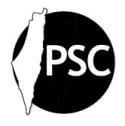Everything you need to know about today’s media coverage of Israel.
Big time speculation of a possible attack on Iran eclipsed the Palestinian statehood push and the new Gaza flotilla.
Iran’s Atomic Agenda
 • The Guardian sparked a lot of buzz, reporting that the IAEA has uncovered Iranian nuclear experiments that could only be used for making a weapon. It’s findings will be released next week:
• The Guardian sparked a lot of buzz, reporting that the IAEA has uncovered Iranian nuclear experiments that could only be used for making a weapon. It’s findings will be released next week:
The report by the International Atomic Energy Agency (IAEA) is the latest of a series of quarterly bulletins on Iran’s activities, but this one will contain an unprecedented level of detail on research and experiments carried out in Iran in recent years, which western officials allege could only be for the design and development of a nuclear warhead. “This will be a game-changer in the Iranian nuclear dossier,” a western official predicted. “It is going to be hard for even Moscow or Beijing to downplay its significance.”
The Daily Telegraph elaborates on what the upcoming IAEA report will say.
• The Guardian also reports that the UK military is stepping up its contingency plans for action against Iranian atomic sites.
• How’s this for dueling headlines — over the same poll!
• A staff-ed in The Independent frets over Israel’s missile test.
Either way, the fact that an attack on Iran is once again in the air, even as the optimism of the Arab Spring prevails elsewhere, reflects Israel’s heightened sense of vulnerability. And it is a sad comment on Israel’s leaders that they have so far been unable to respond to the historic changes taking place around them more positively than they have. It is not the Palestinians’ fault alone that the Middle East peace process is as moribund as it was a year ago.
• Jackson Diehl on the timing of the war drums:
It refocuses attention on the Iranian threat, and takes it away from the Palestinian bid for statehood at the United Nations; it raises the pressure on the United States and its allies to increase sanctions and other nonmilitary pressure on Tehran.
• Peter Beinart (The Daily Beast) likes that the Israeli military and intelligence community pushing back against the political echelon’s tough talk on Iran:
Why is all this impressive? Because it is exactly what did not happen in the United States in the run-up to the Iraq War. In 2002 and 2003, many in the U.S. military and intelligence agencies opposed invading Iraq, but they were either silenced or ignored.
• See also Tony Karon (Time).
Peace Process
• You’ll like the latest from Investors Business Daily cartoonist Michael Ramirez:

• Dr. Nabil Kukali’s latest poll of Jerusalem’s Palestinians turned up a suprising indifference to the PLO’s statehood push. Among the findings published at the Washington Institute:
> . . . half (53 percent) said they would prefer Palestinian citizenship, compared to just 30 percent in November 2010. Yet fewer than half (44 percent) said they would probably move, if necessary, in order to obtain it.
> Just one-third (34 percent) of the September respondents said that the UN vote on Palestinian membership would have any positive practical effect on their own lives.
> . . . a majority (62 percent) said that “the ability to vote in Israeli national elections” would be at least moderately important to them if their neighborhood were recognized as part of Israel.
> despite libelous rhetoric about the “Judaization” of Jerusalem, Palestinian population growth in the city has outpaced that of Israelis by far . . . . the Palestinian percentage of the city’s total population has increased from under 25 percent in 1967 to 37 percent today.
Only a relatively small minority (24 percent) of east Jerusalem Palestinians now say they are dissatisfied with “the ease or difficulty of obtaining building permits” in the city
Elliott Abrams‘s response sums it all up.
A great deal of conventional wisdom bites the dust.
• An organization that monitors school books and curriculum in the Mideast, IMPACT-SE, says the PA’s own text books don’t meet UNESCO standards. More at the Jerusalem Post.
• You’ll like the latest from Pittsburgh Tribune-Review cartoonist Randy Bish.

• Point of No Return asks: What did UNESCO ever do for the Jews?
• The NY Post asks: Can we defund the UN before a statehood vote?
• The Pittsburgh Post-Gazette asks: Can’t Congress free up money for UNESCO?
• The Pittsburgh Tribune-Review asks: UNESCO: What’s that smell?
Arab Spring
• The idea sounds far-fetched, but Washington Post columnist David Ignatius makes a surprisingly compelling argument that Egypt might actually convince Hamas to moderate itself. I’ll second-guess myself later.
 • According to AP, Libya’s struggling to secure weapons depots, clamp down on arms smuggling, and get a handle on thousands of armed gunmen who fought the Gadaffi regime. How significant is that? Depends on which think tanker you ask:
• According to AP, Libya’s struggling to secure weapons depots, clamp down on arms smuggling, and get a handle on thousands of armed gunmen who fought the Gadaffi regime. How significant is that? Depends on which think tanker you ask:
Boaz Ganor, an Israeli counter-terrorism expert, said it’s impossible to estimate how many anti-aircraft missiles have disappeared in Libya. “It’s enough that (just) dozens would fall into the hands of terror organizations, and we find ourselves in a new era of terror against aircraft,” he said.
But other security experts noted that shoulder-held anti-aircraft missiles, like all munitions, decay over time and that Libya is not the only black market source of such weapons.
“There is no shortage of this stuff (worldwide),” said John Pike of GlobalSecurity.org, a U.S.-based think tank.
Whether or not you agree with Ganor or Pike, international jihad’s holiday shopping season is on.
• In a NY Times op-ed, former Jordanian diplomat Marwan Muashar says the Islamist threat to the Arab Spring is “overblown.”
• To Iran’s chagrin, the Arab Spring’s seeing a rise in Turkish clout. So says this Christian Science Monitor analysis:
So far, analysts say, Turkey appears the winner in pushing for secular, democratic outcomes in Tunisia, Libya, Egypt, and especially Syria – even if more by default than by design. And Iran, offering little more than nondemocratic Islamic rule and anti-Western vitriol, at this point appears the loser.
Rest O’ the Roundup
• Another flotilla’s en route to Gaza, which means it’s time to dust off the Palmer report (pdf) and these two key points:
The naval blockade was imposed as a legitimate security measure in order to prevent weapons from entering Gaza by sea and its implementation complied with the requirements of international law.
. . .
All humanitarian missions wishing to assist the Gaza population should do so through established procedures and the designated land crossings in consultation with the Government of Israel and the Palestinian Authority.
I can’t dumb it down any more than that without help from Ted Koppel and the Muppets.
• The flotillaniks are quite open about the fact that their aim is to break the Gaza blockade, while the modest amount of medical items they’re carrying are symbolic. So I’m wondering why this headline in The Australian describes the MV Saoirse and the Tahrir as medical ships.

• FYI, Irish Times reporter Mary Fitzgerald is reporting and tweeting from the flotilla. So are Press TV and Al-Jazeera.
• When a pair of NGOs accused Israeli doctors of failing to report the torture of Palestinian detainees held by Israel, The Guardian (Harriet Sherwood) naturally plugged their allegations. See NGO-Monitor’s background on the Public Committee Against Torture in Israel and Physicians for Human Rights.
Sherwood also breaks out the violins with a simplistic look at Israel’s Bedouins. In Al-Guardian’s world view, Bedouins = Good and Israel = Bad.
• An unauthorized Egyptian helicopter entered Israel and flew around the Negev for 25 minutes, not leaving until IAF jets fired warning shots. According to YNet News, “all possibilities were being examined, including an intelligence gathering mission or an unintentional error.”
 • The UK Advertising Standards Authority‘s at it again: They ruled against an advertisement for a property firm which dared to suggest that a development in Efrat was in “Israel.”
• The UK Advertising Standards Authority‘s at it again: They ruled against an advertisement for a property firm which dared to suggest that a development in Efrat was in “Israel.”
We considered that the fact that the development in Efrat in Dekel was in the West Bank, in territory not internationally recognised as part of Israel, was likely to be highly material to consumers and that the omission of the information rendered the ad misleading.
More background at the Jewish Chronicle, which notes:
The ASA decision was welcomed by the Palestine Solidarity Campaign, one of whose members reportedly made the complaint. The PSC’s logo sports a map of Palestine which includes the whole of Israel.
Is the Palestine Solidarity Campaign misleading the public into thinking that all of Israel is Palestine? Hmmmm.



